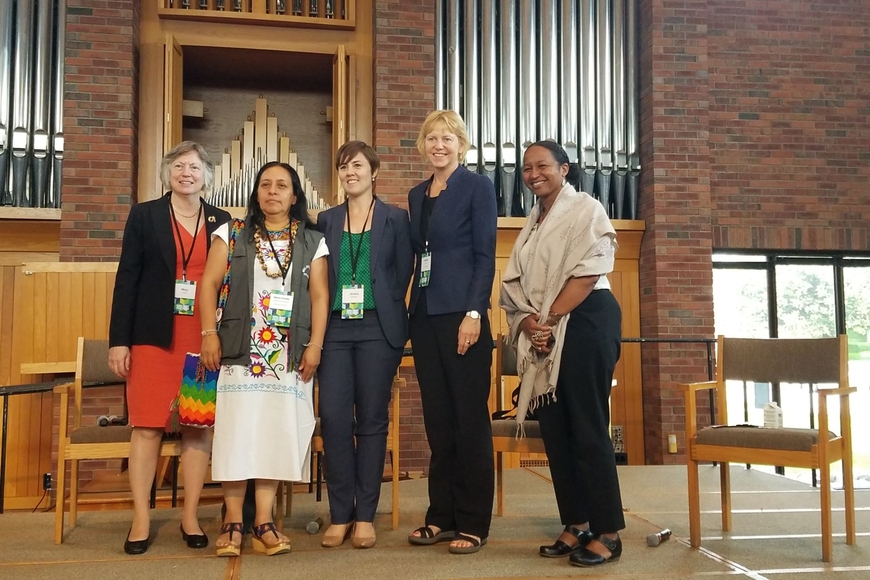The Paradox of Peace: 2018 Nobel Peace Prize Forum in Minneapolis
On September 13th-15th, community members, students, scholars, and leaders from across the globe gathered at Augsburg University for the 2018 Minneapolis Nobel Peace Prize Forum. The Paradox of Peace was the theme this year, highlighting the complex intersection of the pursuit of justice with the search for peace. This event, annually hosted in Minneapolis, was hosted by Augsburg University this year and featured University of Minnesota faculty in panel discussions. As an undergraduate student from the University of Minnesota and a staff representative from the University’s Human Rights Program, I attended Friday’s event. It was filled with experienced and knowledgeable academics and activists that used their varying life experiences and paths of activism to speak to the incredibly complicated intersection of peace and justice.
Friday's events recognized the work of Colombian President Juan Manuel Santos who received the 2016 Nobel Peace Prize for negotiating a peace accord between his government and the FARC group (Fuerzas Armadas Revolucionarias de Colombia). Saturday’s proceedings highlighted the 2017 laureate, the International Campaign to Abolish Nuclear Weapons, whose efforts focused on communicating the catastrophic consequences of using nuclear weapons.
Friday’s Conference
Friday's opening plenary panel focused on the history of the FARC, the process of negotiating the peace accords in Colombia, and the risks that face the country today as it navigates through the peace process. The panel included Leonel Narvaez Gomez (Colombian sociologist), Claudia Lopez (former senator of the Republic of Colombia), and Nancy Lindborg (President of the United States Institute of Peace).
A breakout session, “Navigating the Paradox of Peace: Violence, Justice, and Reconciliation in Colombia,” highlighted the expertise of Mary Curtin, Diplomat in Residence at the Humphrey School of Public Affairs and member of the Human Rights Faculty and Jessica Stanton, Associate Professor in the Global Policy Area at the Humphrey School, and co-Director of Graduate Studies for the Master of Human Rights degree program. In her presentation, Professor Stanton addressed the peace paradox by pointing out that the international community is often quick to pressure countries to seek justice, yet, the people within the country feel a very urgent need for peace and therefore may be willing to bypass justice in order to pursue more urgent peace, despite the probability that such peace may be short-lived. Another panelist, María Ovidia Palechor Anacona, a community activist from Colombia, pointed out that violence exists, in large part, due to the extreme inequality in the country.
Additional representation from the University of Minnesota, included J. Wren Supak, a visual artist and second-year Master of Human Rights Candidate. Drawing on her experience in Bogotá, Colombia over the summer, Wren sat on a panel “Artists as Peacemakers, discussing the connection of her art to peace and justice and the role public art and theater play as a means of reconciliatory performance to enhance understanding between disparate groups.
Dean of the Humphrey School and key contributor to launching the Masters of Human Rights degree program Laura Bloomberg spoke on the opening plenary on “A Nuclear Weapons Ban” on Saturday, September 15th.



